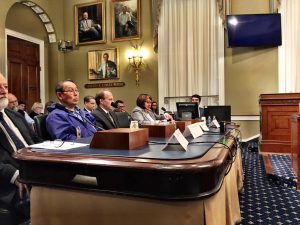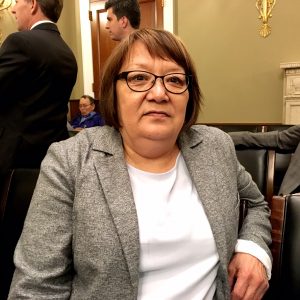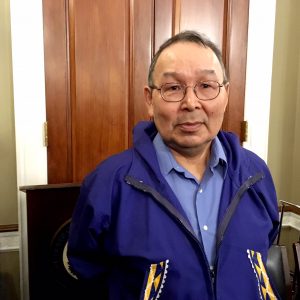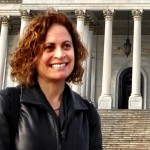
At the U.S. Capitol, Alaska Congressman Don Young is known to berate Democrats and environmentalists who oppose his efforts to get a road for King Cove. Young accuses them of being indifferent to the lives of his constituents, the Alaska Natives who reside in a remote, isolated community. But at a hearing Wednesday, the witness who spoke against the road was also an Alaska Native from a remote, isolated community. And this wasn’t just about the road.
Young glared across the dais in the hearing room, at the Democrats on the Natural Resources subcommittee on federal lands. One of them had just spoken against the 11-mile road for King Cove, saying it would harm waterfowl habitat in the Izembek National Wildlife Refuge. Young said the road would save lives.
“The day that this Congress would take and love a goose, that’s not going to be harmed, over a human life – shame on you!” Young said. “I’m not going to tolerate that. You want to go out and kill people, go out and kill them! But don’t do it because you’re being stupid!”
Della Trumble, speaking for her fellow residents of King Cove, told the subcommittee they need the road so they can drive to the all-weather airport at Cold Bay, so they won’t have to endure dangerous flights from their town when they need medical care.
“And I for one know this know this first hand, as I witnessed my daughter’s airplane crash-land at the field in King Cove, four years ago,” Trumble said.

(All aboard survived)
The details change, with new accounts of harrowing medical evacuations every year, but this is how hearings on the road have gone for decades. Trumble said she’s been to Washington at least 30 times to advocate for the road. Less usual was the type of witness who spoke Wednesday against the road.
“My name is Myron P. Naneng, Sr. from Hooper Bay, a village in Western Alaska,” the ex-president of the Association of Village Council Presidents said.
Naneng is now the board president of Hooper Bay’s village corporation. His region, the Yukon-Kuskokwim Delta, is a few hundred miles from Izembek, but he said the people in the Delta have traditionally depended on the waterfowl that feed in the Izembek lagoons during the spring and fall migrations. Naneng pointed out that people in his area have been severely curtailed in the number of salmon they can take.
“If we’re not allowed to fish for salmon, what other food resources would we be allowed to harvest? That’s why migratory birds are just as important for our subsistence use,” Naneng said during a break in the hearing.

Raising a long-standing beef, Naneng said commercial fishermen in the Eastern Aleutians, near King Cove, have not faced similar restrictions, and some of the salmon they catch are bound for the Y-K Delta.
“You know, we’ve gone to the Board of Fisheries to get them to recognize the fact that our people on the Yukon or Kuskokwim need salmon for food,” Naneng said. “But it seems like big-money advocates usually get the best of whoever are the decision-makers.”
It’s an argument King Cove has heard before. The Aleutians East Borough has a webpage to debunk the claim that fishermen catch all the northbound salmon at False Pass.
Naneng said even if there were plenty of fish in his region, he’d still be fighting the King Cove road, to conserve waterfowl. It’s a cause he’s pursued in the Delta for years. As for King Cove’s need for safe transportation, Naneng said lots of Y-K villages have it just as bad.
Naneng, with some pressing, acknowledged The Wilderness Society paid for part of his trip to speak against the road, though he said his village corporation picked up most of it.
Young did not go after Naneng as harshly as he has other road opponents. But the subcommittee chairman, Rep. Tom McClintock, R-Calif., took a swipe at Naneng as he questioned Trumble.
“He’s not even from this community? … But he wants to deny your community the right to build this road?” McClintock said.
Young later said it’s not good to have two Alaska communities pitted against each other.
As he has in the past, Young has sponsored a bill that would authorize a land trade for the road corridor. The state would exchange 43,000 acres of land in exchange for 206 acres within the refuge. The bill would waive any more review under the National Environmental Policy Act.
Then-Interior Secretary Sally Jewell rejected a similar exchange in 2013. King Cove is challenging her decision in court. If the community wins, road advocates hope the trade can occur without another act of Congress.
Liz Ruskin is the Washington, D.C., correspondent at Alaska Public Media. Reach her at lruskin@alaskapublic.org. Read more about Liz here.





